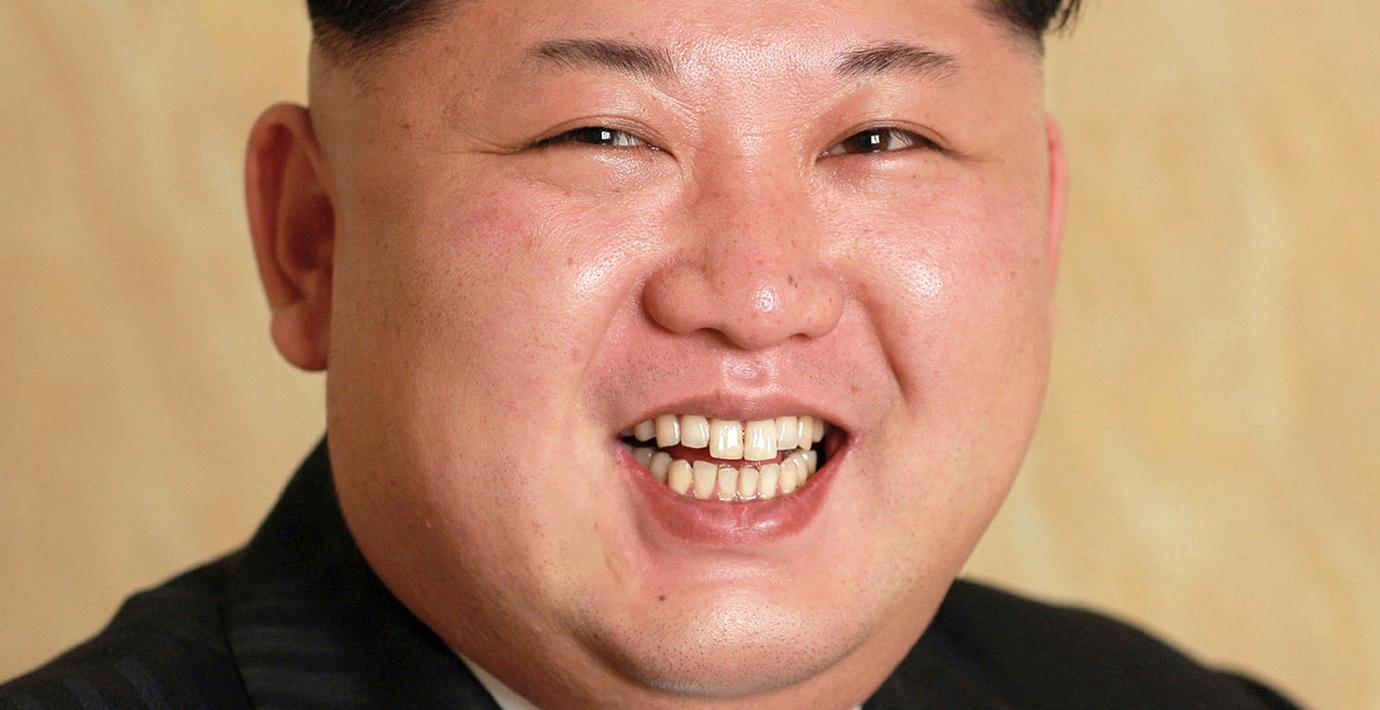
Utan Photoshop – Kim Jong-Uns verkliga ansikte
För första gången har den nordkoreanska diktaturen släppt en högupplöst och oredigerad bild på ledaren Kim Jong-Un, skriver The Guardian.
Chang Yong-Seok, Nordkoreaexpert på universitetet i Seoul, säger till tidningen att det kan vara ett försök att visa upp en mer naturlig och positiv sida av diktatorn.
Kim Jong-Un är inte den första nordkoreanska ledare som låtit redigera bilder av sig. Nationens grundare Kim Il-Sung ska under många år ha levt med en stor böld i nacken som redigerades bort från officiella bilder.
bakgrund
Kim Il-Sungs utväxt ska inte ha gått att operera bort
Wikipedia (en)
Kim Il-sung (Chosŏn'gŭl: 김일성; English pronunciation: /ˈkɪm ˈɪlˈsʊŋ, ˈsʌŋ/; Korean pronunciation: [kim ils͈ʌŋ]; born Kim Sŏng-ju (김성주); 15 April 1912 – 8 July 1994) was the supreme leader of the Democratic People's Republic of Korea (DPRK), commonly referred to as North Korea, for 46 years, from its establishment in 1948 until his death in 1994. He held the posts of Prime Minister from 1948 to 1972 and President from 1972 to 1994. He was also the leader of the Workers' Party of Korea from 1949 to 1994 (titled as chairman from 1949 to 1966 and as general secretary after 1966). Coming to power after the overthrow of Japanese rule in 1945, he authorized the invasion of South Korea in 1950, triggering a defense of South Korea by the United Nations led by the United States. A cease-fire in the Korean War was signed on 27 July 1953.
Under his leadership, North Korea became a socialist state and had close political and economic relations with the Soviet Union, which gave the country many similarities in those respects. By the 1960s and 1970s, North Korea enjoyed a relatively high standard of living, outperforming the South, which was crippled by political instability and economic crises. Differences between North Korea and the Soviet Union made the country non-aligned in world politics, central among these differences being Kim Il-sung's philosophy of Juche, which focused on Korean patriotism and self-reliance. Juche eventually replaced Marxism-Leninism and communism altogether.
A cult of personality around Kim Il-sung came to dominate domestic politics and loyalty to the supreme leader was a de facto condition for public office. At the 6th Workers' Party Congress in 1980, his son Kim Jong-il, who had consolidated control over the party through the cult of personality, was selected as his heir to supreme leadership.
In 1991, following the dissolution of the Soviet Union, North Korea's economy collapsed, leading to widespread poverty and famine. After transitioning his military authority to Kim Jong-il in 1993, Kim Il-sung died in the summer of 1994. His legacy is complicated by genuine admiration from older generations and the successive regime's attempts to exploit it for legitimacy. The North Korean government refers to Kim Il-sung as "The Great Leader" (위대한 수령, widaehan suryŏng) and he is designated in the North Korean constitution as the country's "Eternal President". His birthday is a public holiday in North Korea and is called the "Day of the Sun".
Omni är politiskt obundna och oberoende. Vi strävar efter att ge fler perspektiv på nyheterna. Har du frågor eller synpunkter kring vår rapportering? Kontakta redaktionen